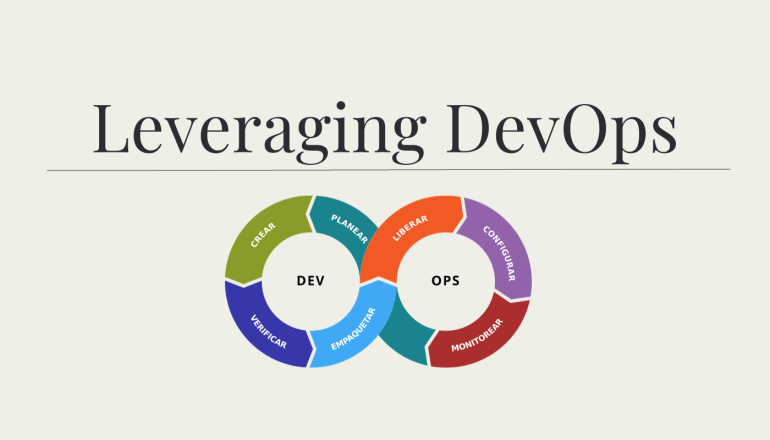If you’re a software developer, you’ve probably heard the term “DevOps” thrown around. You may even know that it’s about automating and improving your company’s software delivery process, but what does that really mean? In short: DevOps consulting services are used to increase the efficiency and effectiveness of software delivery processes in order to improve quality and speed up releases. But how can DevOps consulting help your organization achieve these objectives? To learn more about how this approach could benefit your company, keep reading!
The Role of DevOps in Software Delivery
DevOps is a cultural and professional movement that emphasizes communication, collaboration, integration and automation between software developers and information technology (IT) professionals. It aims at establishing a culture where building, testing and releasing software can happen rapidly with minimal human intervention.
This approach has gained momentum in recent years due to its effectiveness in boosting software delivery speed while minimizing errors.
Benefits of DevOps Consulting Services
The benefits of DevOps consulting services include:
- Improvement of software delivery processes. This includes optimizing your existing development and deployment process and creating a new one that improves performance, increases productivity and reduces costs.
- Increased productivity through automation, which can help speed up your software development lifecycle (SDLC).
- Reduced costs by automating manual tasks, eliminating redundant work and reducing errors that cause rework or downtime during deployments.
- Improved customer satisfaction by reducing IT-related issues so they don’t affect the business’s ability to deliver high-quality products or services. This also helps prevent downtime that affects customers’ experiences with your company’s products or services over time.
Assessing Your Current Software Delivery Process
The first step in optimizing your software delivery and deployment processes is to understand the current state of things. By identifying areas where you can improve, you can set up a DevOps consulting project that will be successful and deliver real results.
Storefront Incubation – Keep with TrendsTo get started, ask yourself these questions:
- What are our goals for improving this process? What do we want it to look like eventually?
- How long does it take us now from start to finish (e.g., development through production) for each new release cycle or version update? Are there any bottlenecks in particular parts of the process that cause delays or make them less efficient than they could be if optimized further? Are there times when work gets stalled because there aren’t enough resources available (e.g., developers) at any given point during development timeframes due to too much demand on their time from other projects within the organization as a whole rather than just yours specifically.
Tailoring DevOps Strategies to Your Organization
In order to tailor DevOps strategies to your organization, it’s important to understand what DevOps is and how it can be applied.
DevOps is not a one-size-fits-all approach; rather, it’s a framework that can be customized based on your organization’s needs. In order to successfully implement DevOps within your company, there are three main areas you’ll want to focus on:
Why Professional SEO Services is important for your business?- Defining the scope of your initiative – What aspects of software delivery do you want to optimize? Are there specific issues affecting your team that need fixing? If so, which ones? How will this help meet business goals like revenue growth and customer satisfaction?
- Identifying goals – What does success look like for this project? Who gets involved in making these decisions (and why)? Are there any risks associated with changing things up too much or too quickly and if so what steps should we take ahead of time so we don’t get caught off guard later down the road due to unforeseen circumstances arising from our implementation efforts failing miserably due largely because we didn’t plan ahead enough beforehand.
Implementing DevOps Best Practices
DevOps best practices are a set of guiding principles that can be applied to software delivery and deployment processes. There is no one-size-fits-all solution when it comes to implementing DevOps best practices, but these guidelines can be tailored for your organization’s needs.
Measuring and Monitoring DevOps Success
DevOps is a methodology, not a process. It’s about how you work together and what you do from that perspective. So, how do you measure success?
The first step in measuring DevOps success is to have a strategy for measuring and monitoring your organization’s performance. This means understanding what metrics matter most to your business goals, then collecting data that can help answer questions like: Are we getting closer or farther away from our goals? What are the biggest obstacles preventing us from achieving them? How can we get over those obstacles faster than ever before and keep doing so in the future?
Top 5 Online Jobs for College StudentsMetrics are important because they provide insight into how well things are going right now (or not), which helps leaders make decisions about what changes need to be made now versus later on down the line when it might be too late if left unaddressed until then.
Continuous Improvement and Future Outlook
DevOps is an ongoing process, and it’s important to keep an eye on how your organization is doing.
Continuous improvement is one of the cornerstones of DevOps and it’s important to measure success in order to make changes that will improve your software delivery process.
Scaling Your Print On Demand Business: A 5-Step GuideYou can use metrics such as lead time, cycle time, defect rate or throughput (number of features shipped) as indicators for improvements in each area of your software delivery pipeline: requirements gathering; planning; development; testing/QA; deployment/release management; monitoring & alerting etc.
While most organizations have a clear understanding of what they want to accomplish with their software delivery process, it’s not always clear how to get there. In many cases, organizations need help identifying the right strategies and solutions for their specific needs. Consulting services can help you assess your current status and tailor devops strategies that are appropriate for your organization whether you’re just starting out or looking to improve upon an existing strategy. Consulting services also play an important role in implementing any new initiatives by providing guidance on best practices from experienced professionals who have worked with similar challenges before.
Conclusion
DevOps consulting services can help you optimize your software delivery process and ensure that it’s aligned with business objectives. The key is to assess your current state, identify areas of improvement and prioritize them based on their value to the organization. We hope this blog post has given you some insight into how DevOps consulting services can help your organization achieve its goals more quickly than ever before!







